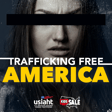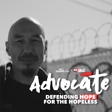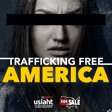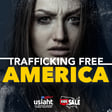
How an 11 year-old girl was trafficked: The Story of Oree Freeman, PART 3 | S6, E9
🎙️ RE-RUN: Oree Freeman’s Story – From Trafficking Victim to National Leader | Trafficking Free America Podcast (final episode of 3-part story)
📢 Welcome back to Season 1 of the Trafficking Free America Podcast, brought to you by the U.S. Institute Against Human Trafficking (USIAHT). We're re-airing this unforgettable episode to honor the journey and impact of Oree Freeman, who now serves as the Director of Operations at USIAHT.
In this gripping and emotional episode, Oree courageously recounts her experiences as a survivor of child sex trafficking—exploited as young as 11 years old—and her remarkable path to healing, advocacy, and leadership. Her story reveals the painful reality of trafficking, the gaps in our systems, and the deep importance of trust, restoration, and real community.
💬 Whether you’re a concerned citizen, a professional serving vulnerable youth, or someone seeking hope, Oree’s voice will challenge, inspire, and transform your understanding of what survivors truly need to heal.
⏱️ TIMESTAMPS:
00:00 – Oree’s introduction to trafficking at age 11
01:15 – Exposure to abuse by people in positions of power
03:19 – Why demand fuels sex trafficking
04:26 – Helping survivors without being the “hero”
05:10 – Arrest, juvenile hall, and becoming a ward of the court
07:39 – Two months of trafficking and its lifelong impact
08:11 – Mother’s rejection in court
10:28 – Group homes and the start of healing
11:45 – The hard truth: restoration isn’t linear
14:39 – The physical toll of life in “the game”
20:07 – Transformation through creative expression and leadership
24:11 – Where was God? Oree’s reflection on faith through trauma
🔗 Learn more & get involved:
Become a part of the fight. Take our free certification to make your community a Trafficking Free Zone:
👉 https://usiaht.org/traffickingfreezone
📣 Subscribe and share this episode to raise awareness and bring hope to others. Let’s build a world where no child is bought or sold.
#HumanTraffickingAwareness #OreeFreeman #SurvivorLeader #USIAHT #TraffickingFreeAmerica #EndHumanTrafficking #PodcastReRun #FaithAndHealing



